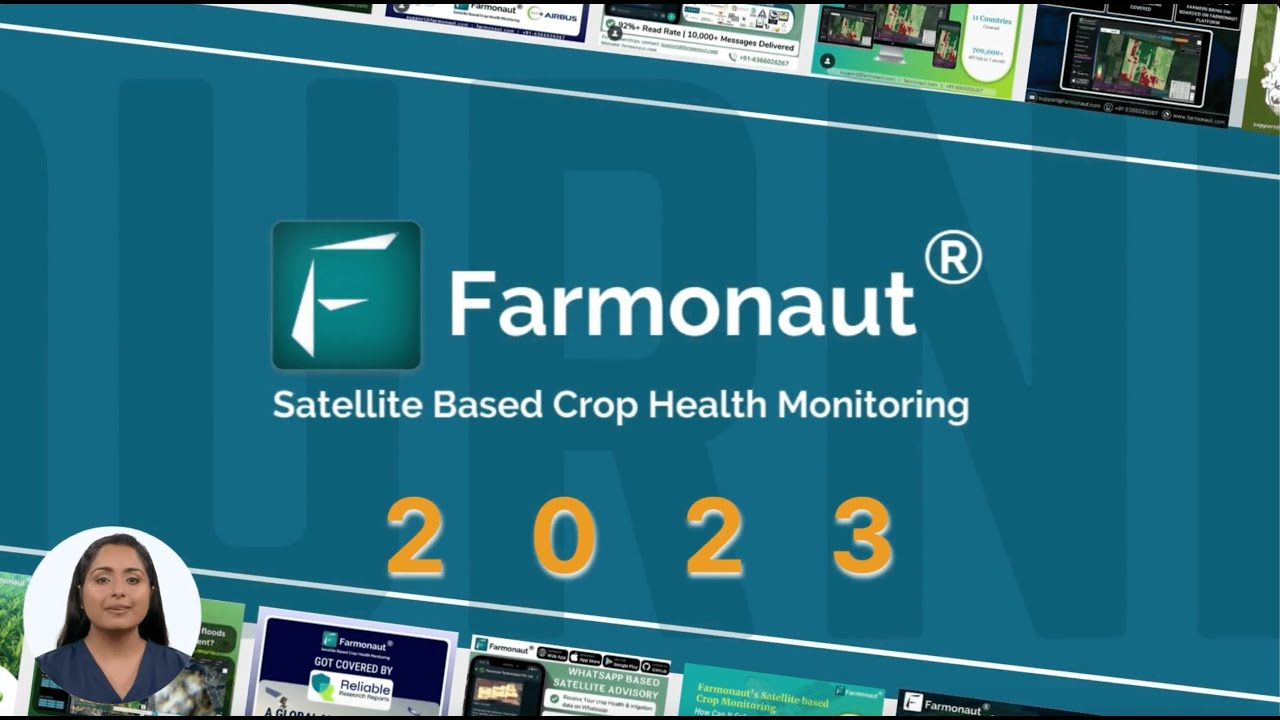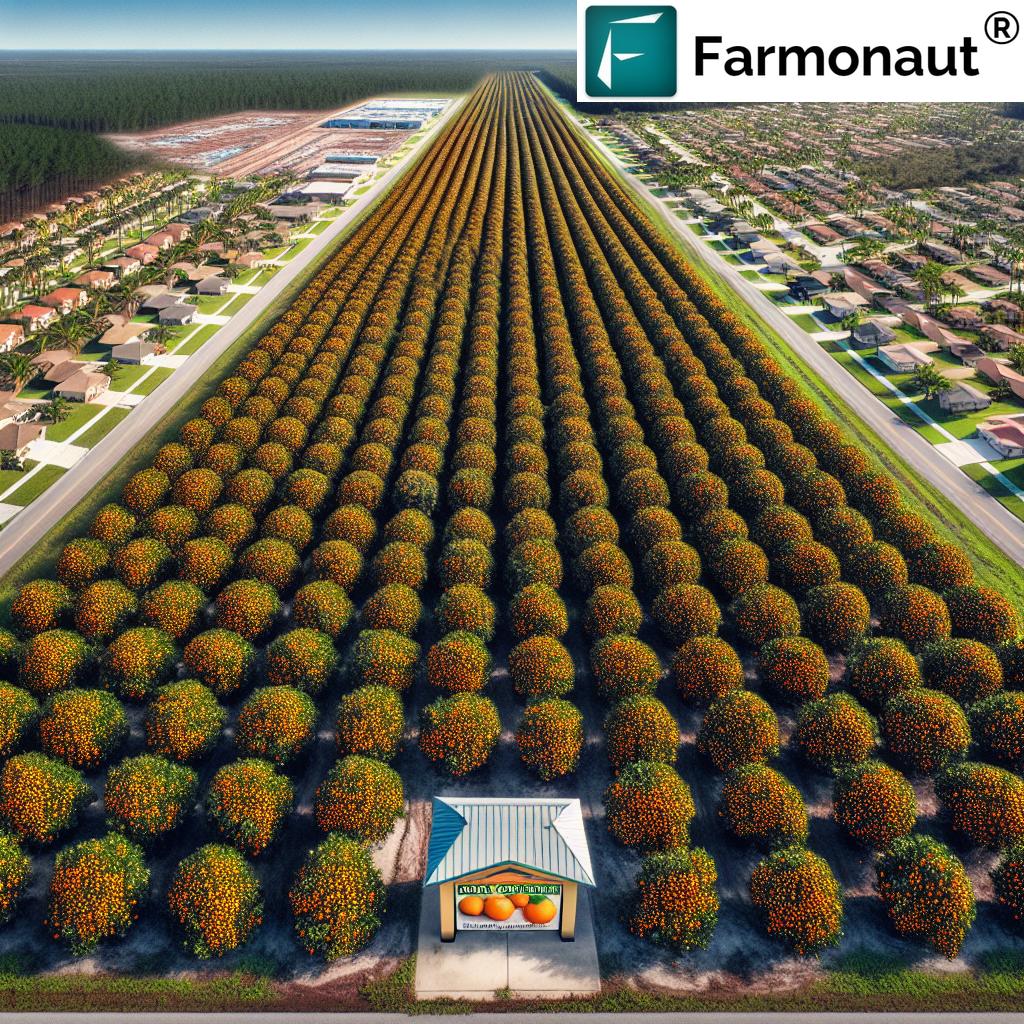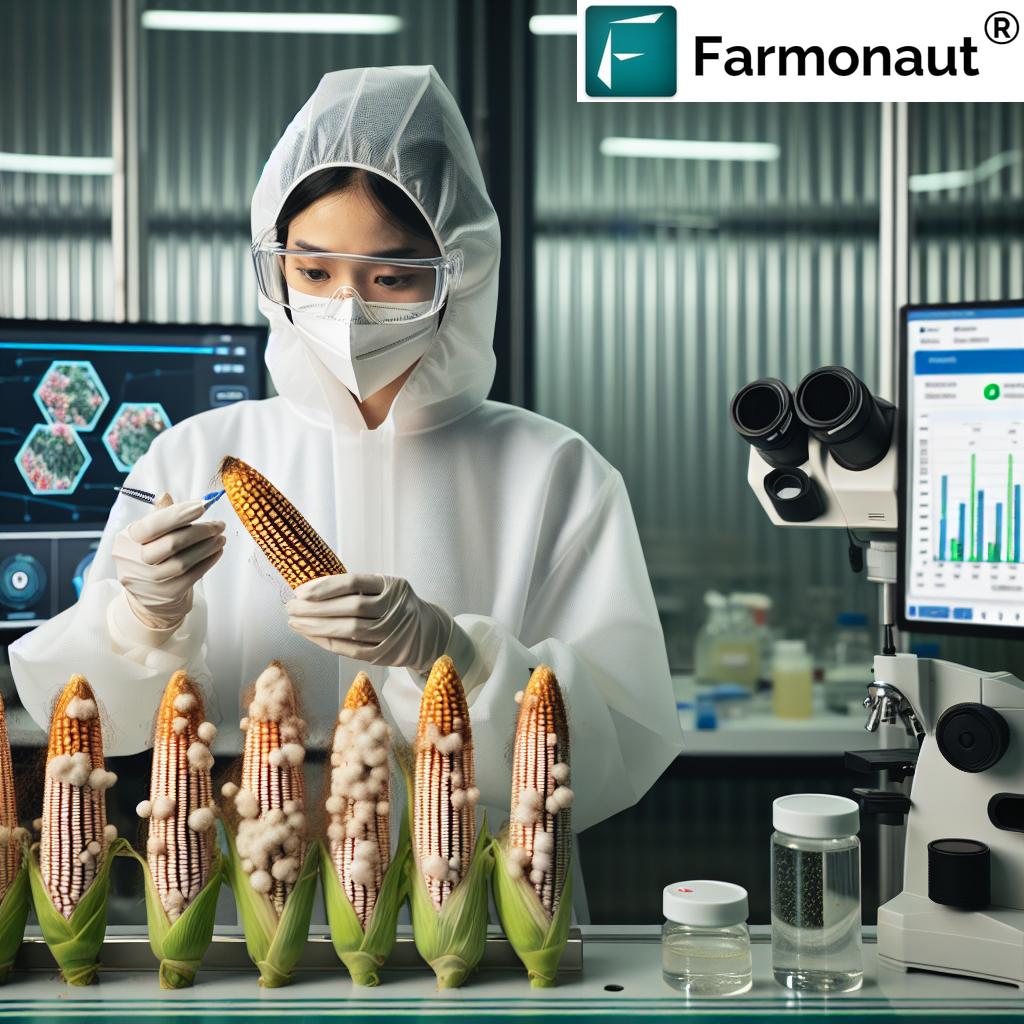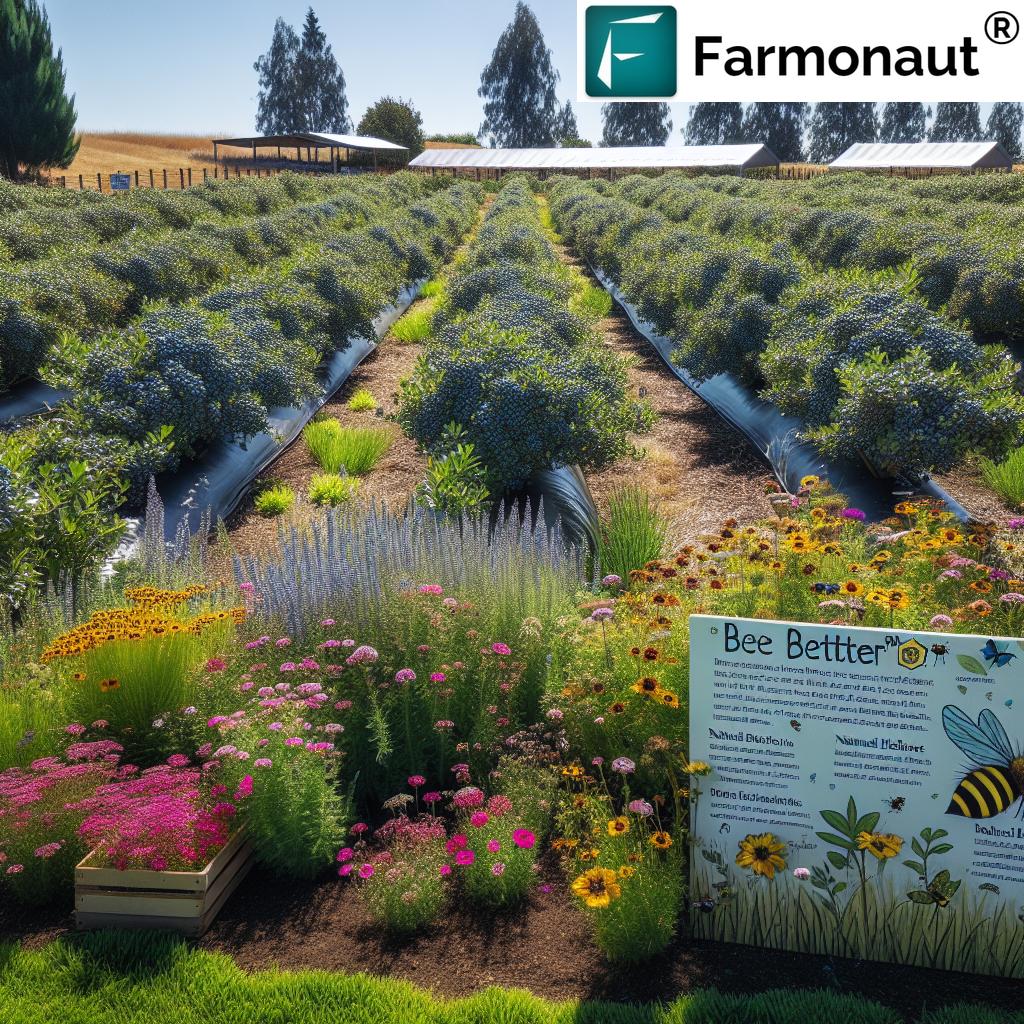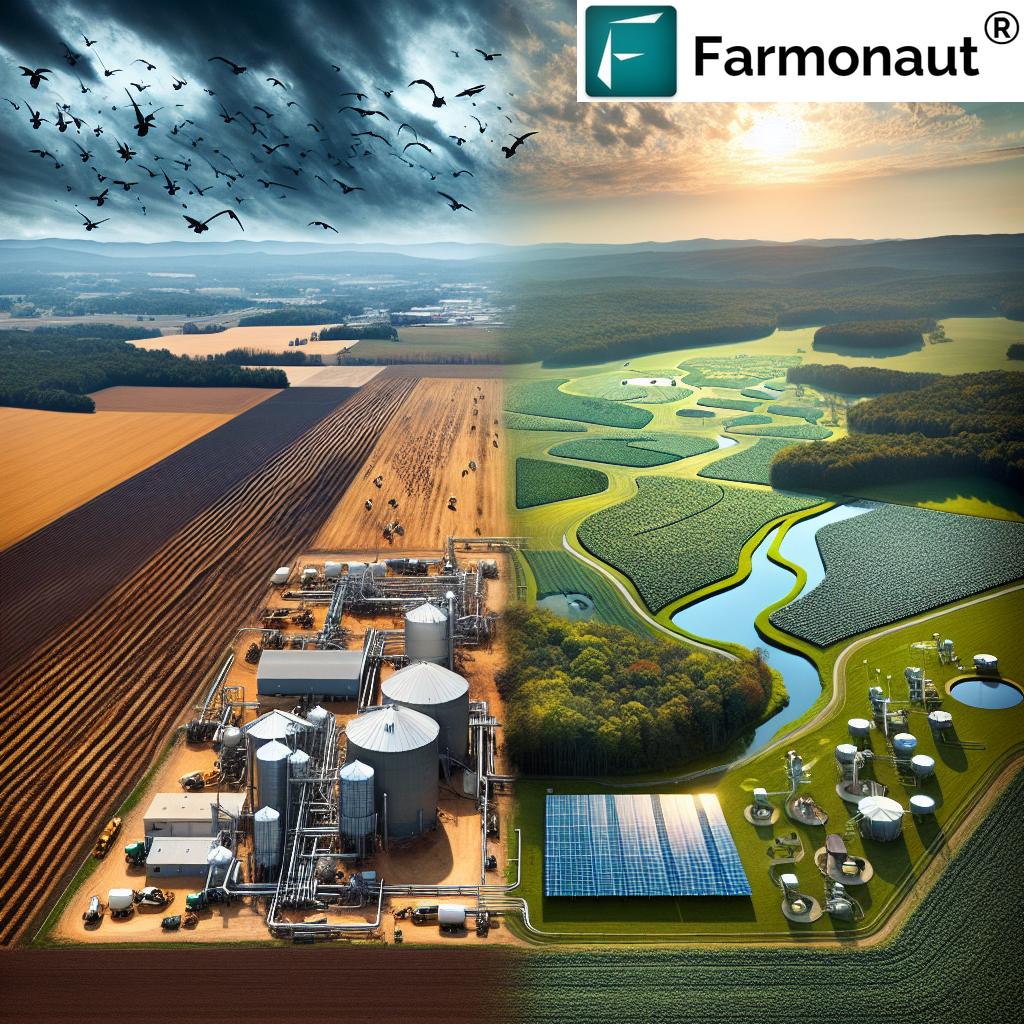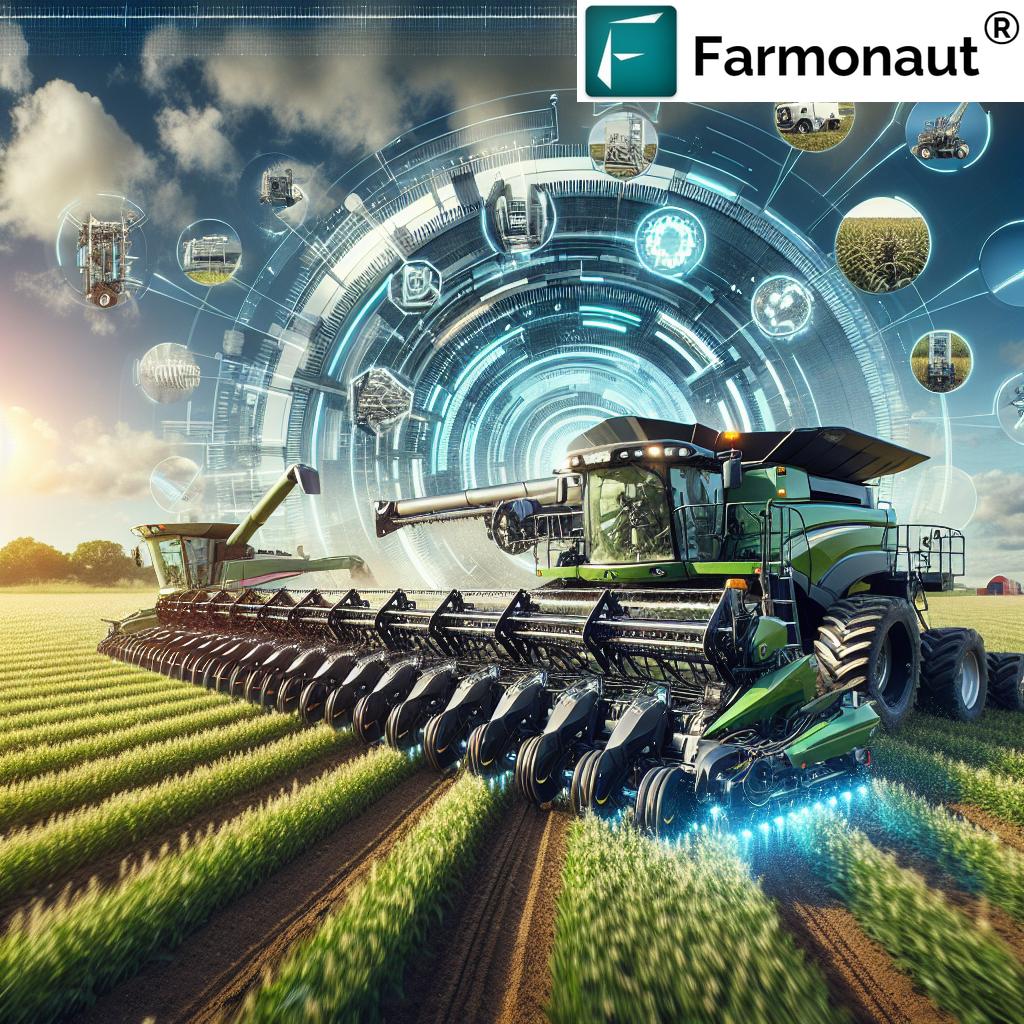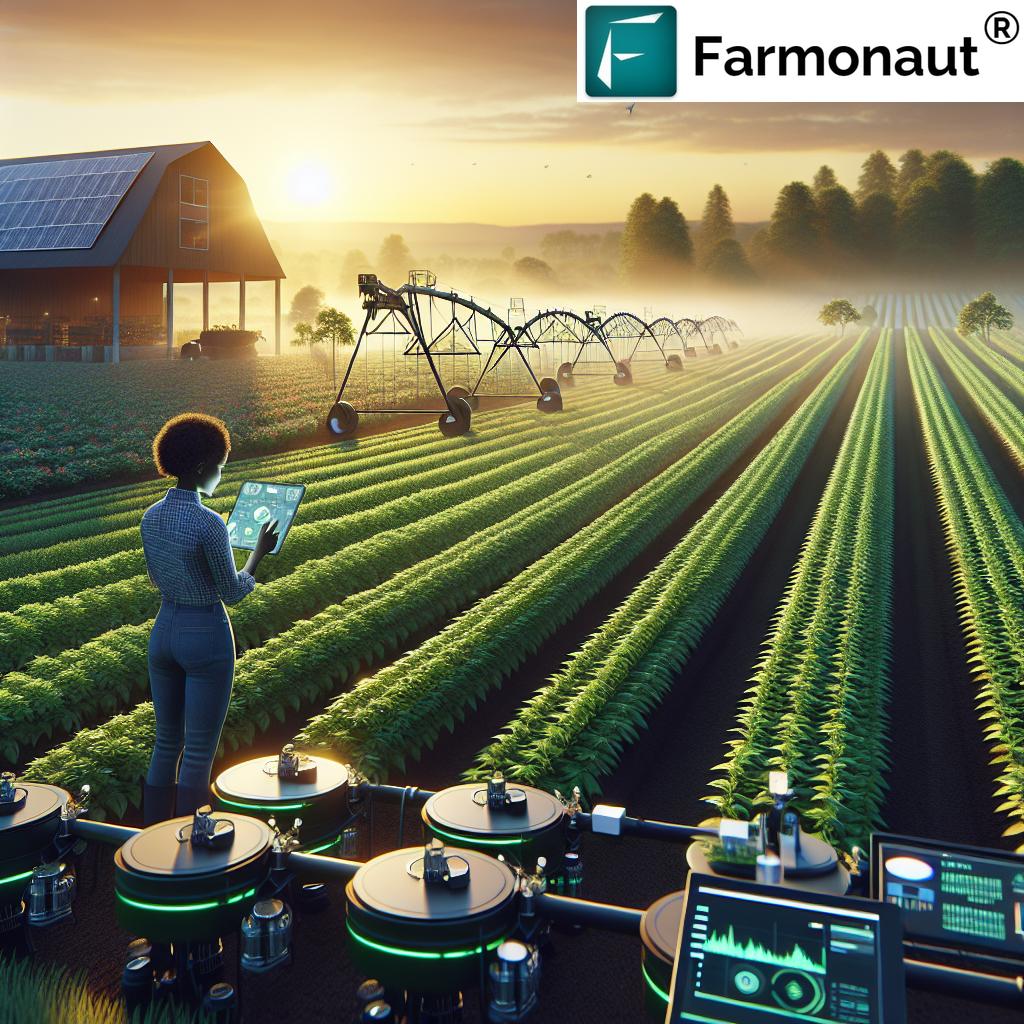Revolutionizing Texas Agriculture: Smart Equipment Innovations Boost Dividend Growth in Sustainable Farming
“Texas agricultural equipment manufacturer increases dividends by double digits, signaling confidence in smart farming technology growth.”
In the ever-evolving landscape of agricultural equipment manufacturing and vegetation management solutions, we at Farmonaut are excited to bring you the latest industry trends and news. Today, we’re delving into a significant development in the agtech sector that highlights a major player’s commitment to shareholder value through a substantial dividend increase. Join us as we explore the world of smart agricultural equipment and precision agriculture tools, analyzing the impact of this financial move on the broader market.
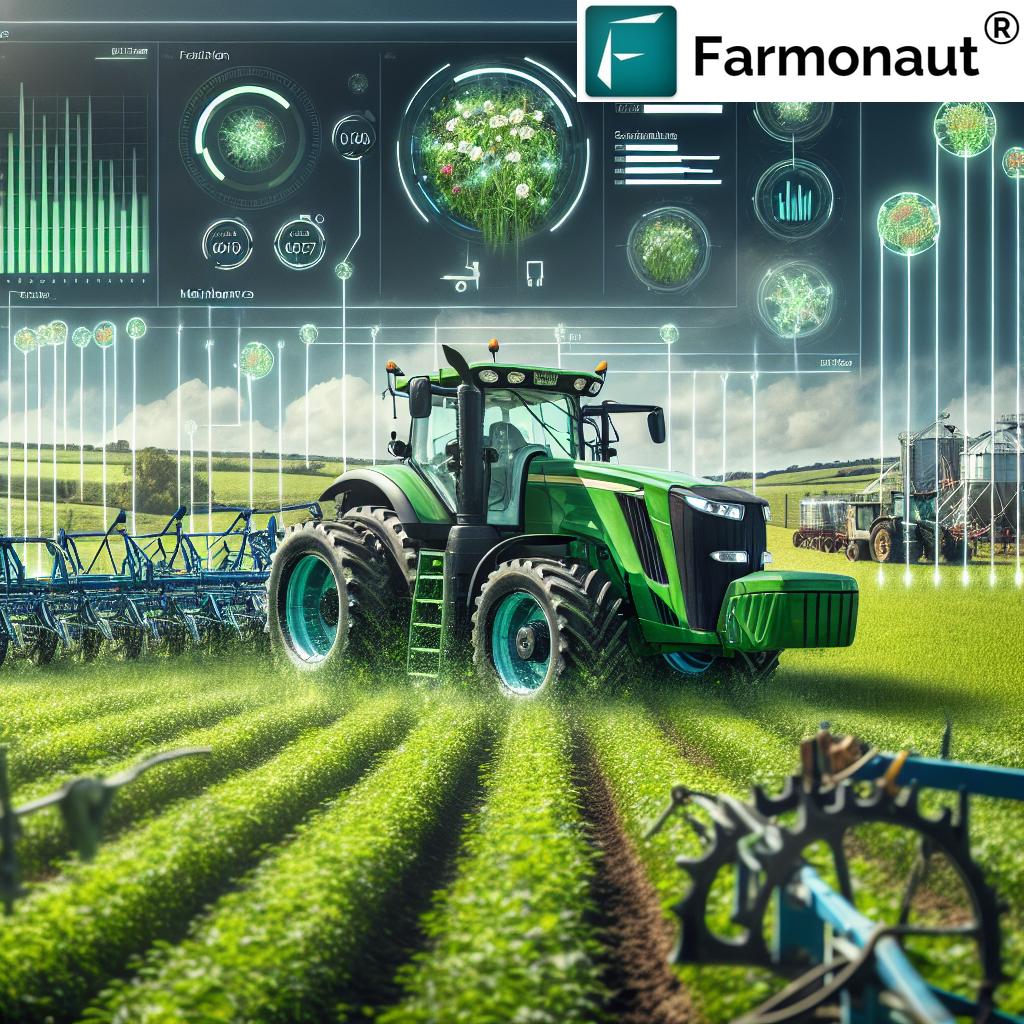
A Landmark Announcement in Agricultural Equipment Manufacturing
On January 2, 2025, Alamo Group Inc., a prominent player in the equipment manufacturing industry headquartered in Seguin, Texas, made waves with a significant announcement. The company’s Board of Directors declared a quarterly dividend of $0.30 per share, marking an impressive increase of $0.04—more than a 15 percent rise from the previous amount. This move not only reflects Alamo Group’s strong commitment to enhancing shareholder value but also aligns perfectly with their disciplined capital allocation strategies.
The newly declared dividend is scheduled for payment on January 29, 2025, to shareholders of record as of the close of business on January 16, 2025. This consistent annual increase in dividends showcases Alamo Group’s success and the unwavering confidence the Board of Directors has in the future of the company.
Alamo Group: A Leader in Vegetation Management and Infrastructure Maintenance
Founded in 1969, Alamo Group has established itself as a powerhouse in the design, manufacture, distribution, and servicing of high-quality equipment used for vegetation management and infrastructure maintenance. Their diverse product line includes:
- Mowing equipment
- Street sweepers
- Snow removal machinery
- Excavators
- Vacuum trucks
- Agricultural implements
- Forestry equipment
- Aftermarket parts and services
As of September 30, 2024, the company boasts a workforce of approximately 4,000 people and operates 28 manufacturing plants across North America, Europe, Australia, and Brazil. This global presence allows Alamo Group to cater to a wide range of markets and adapt to regional agricultural needs.
Smart Agricultural Equipment: Driving Innovation in Farming
The dividend increase announcement by Alamo Group is not just a financial move; it’s a testament to the growing importance of smart agricultural equipment in modern farming practices. Let’s explore some of the key innovations that are revolutionizing the agricultural landscape:
Precision Planting Systems
Smart planting systems use GPS technology and sensors to optimize seed placement, depth, and spacing. These systems can significantly improve crop yields by ensuring each plant has the best possible start.
Autonomous Tractors
Self-driving tractors equipped with AI and machine learning capabilities can perform tasks such as plowing, seeding, and harvesting with minimal human intervention. This technology not only increases efficiency but also addresses labor shortages in the agricultural sector.
Drone-based Crop Monitoring
Unmanned aerial vehicles (UAVs) equipped with multispectral cameras can provide farmers with detailed insights into crop health, pest infestations, and irrigation needs. This technology allows for targeted interventions, reducing the use of pesticides and water.
Smart Irrigation Systems
These systems use soil moisture sensors, weather data, and AI algorithms to optimize water usage in agriculture. By delivering precisely the right amount of water when and where it’s needed, these systems conserve water and improve crop yields.
The Impact of Smart Equipment on Sustainable Farming
The adoption of smart agricultural equipment is not just about increasing productivity; it’s also about promoting sustainable farming practices. Here’s how these innovations are making a difference:
- Reduced Resource Consumption: Precision agriculture tools help farmers use water, fertilizers, and pesticides more efficiently, reducing waste and environmental impact.
- Soil Conservation: Smart tillage equipment can minimize soil disturbance, helping to preserve soil structure and reduce erosion.
- Lower Carbon Footprint: Automated equipment and optimized farm operations can lead to reduced fuel consumption and lower greenhouse gas emissions.
- Improved Biodiversity: By enabling more targeted pest control, smart farming practices can help preserve beneficial insects and promote biodiversity on farms.
At Farmonaut, we’re committed to supporting these sustainable farming initiatives through our advanced satellite-based farm management solutions. Our platform provides valuable services such as real-time crop health monitoring, AI-based advisory systems, and resource management tools, all accessible via our web app, Android app, and iOS app.

The Global Impact of Agtech Innovation
“Global agtech company’s strategic decisions impact operations across 4 continents: North America, Europe, Australia, and Brazil.”
The dividend increase announcement by Alamo Group underscores the global nature of the agricultural technology sector. With operations spanning four continents, the company’s strategic decisions have far-reaching implications for farmers and agricultural practices worldwide. This global presence allows for:
- Cross-pollination of Ideas: Innovations developed in one region can be quickly adapted and implemented in others, accelerating the pace of agricultural advancement.
- Diverse Market Insights: Exposure to various agricultural practices and challenges across different regions informs better product development and solutions.
- Economic Resilience: A diversified geographical presence helps companies like Alamo Group weather regional economic fluctuations and maintain stable growth.
At Farmonaut, we recognize the importance of this global perspective. Our satellite-based solutions are designed to be adaptable to various agricultural contexts around the world, providing farmers with localized insights and recommendations.
Navigating Challenges in the Agricultural Equipment Industry
While the dividend increase signals strength, it’s important to acknowledge the challenges facing the agricultural equipment industry. Alamo Group’s announcement included forward-looking statements that highlight potential risks, including:
- Adverse economic conditions
- Supply chain disruptions
- Labor challenges
- Inflation-related cost increases
- Geopolitical tensions
- Seasonal weather impacts
These factors underscore the need for resilience and adaptability in the agtech sector. Companies that can navigate these challenges while continuing to innovate are likely to emerge as leaders in the industry.
Smart Agricultural Equipment Innovations and Their Impact
| Equipment Type | Key Features | Sustainability Benefits | Potential ROI |
|---|---|---|---|
| Precision Planting Systems | GPS-guided seed placement, Variable rate technology | Reduced seed waste, Optimized resource use | 10-15% increase in crop yield |
| Autonomous Tractors | Self-driving capabilities, AI-powered decision making | Reduced fuel consumption, Minimized soil compaction | 20-30% reduction in operational costs |
| Drone-based Crop Monitoring | Multispectral imaging, Real-time data analysis | Targeted pest management, Reduced chemical use | 15-25% reduction in pesticide costs |
| Smart Irrigation Systems | Soil moisture sensors, Weather data integration | Water conservation, Improved crop health | 30-50% reduction in water usage |
The Role of Data in Modern Agriculture
One of the key drivers behind the success of smart agricultural equipment is the ability to collect, analyze, and act on vast amounts of data. This is where Farmonaut’s expertise comes into play. Our platform leverages satellite imagery and advanced analytics to provide farmers with actionable insights. Here’s how data is revolutionizing agriculture:
- Predictive Analytics: By analyzing historical data and current conditions, farmers can make more informed decisions about planting, harvesting, and crop management.
- Precision Resource Application: Data-driven insights allow for the precise application of water, fertilizers, and pesticides, reducing waste and environmental impact.
- Risk Management: Advanced weather forecasting and crop health monitoring help farmers mitigate risks associated with climate change and pest infestations.
- Supply Chain Optimization: Data analytics can improve the efficiency of the entire agricultural supply chain, from farm to table.
For developers and businesses looking to integrate these powerful data insights into their own systems, Farmonaut offers a robust API. Our API Developer Docs provide comprehensive guidance on leveraging our satellite and weather data for custom agricultural solutions.
The Future of Agricultural Equipment: Trends to Watch
As we look to the future of agricultural equipment manufacturing, several trends are emerging that promise to shape the industry:
1. Integration of IoT and 5G Technology
The Internet of Things (IoT) and 5G connectivity will enable real-time data exchange between farm equipment, sensors, and management systems, creating a more responsive and efficient farming ecosystem.
2. Electrification of Farm Machinery
As the world moves towards sustainable energy solutions, we can expect to see more electric and hybrid agricultural equipment, reducing emissions and operational costs.
3. Advanced Materials in Equipment Design
The use of lightweight, durable materials in equipment manufacturing will improve fuel efficiency and reduce soil compaction, addressing key environmental concerns in agriculture.
4. Modular and Customizable Equipment
Farmers will benefit from more flexible equipment options that can be easily adapted to different crops and farming practices, improving versatility and cost-effectiveness.
5. Enhanced Human-Machine Interfaces
As equipment becomes more sophisticated, user-friendly interfaces and augmented reality (AR) technologies will make it easier for farmers to operate and maintain complex machinery.
At Farmonaut, we’re committed to staying at the forefront of these technological advancements. Our platform is continuously evolving to integrate new data sources and provide even more valuable insights to farmers and agribusinesses.
The Economic Impact of Smart Agricultural Equipment
The adoption of smart agricultural equipment has significant economic implications for farmers, equipment manufacturers, and the broader agricultural sector:
- Increased Productivity: Smart equipment can significantly boost farm productivity, allowing farmers to produce more with fewer resources.
- Cost Savings: While initial investments in smart equipment may be high, the long-term savings in labor, resources, and operational costs can be substantial.
- New Revenue Streams: Data collected by smart equipment can be monetized, providing additional income opportunities for farmers and equipment manufacturers.
- Job Creation: The growth of the agtech sector is creating new jobs in areas such as equipment manufacturing, data analysis, and agricultural consulting.
- Rural Economic Development: As smart farming practices become more prevalent, they can contribute to the revitalization of rural economies.
Alamo Group’s dividend increase is a clear indicator of the economic potential in this sector. As smart agricultural equipment continues to prove its value, we can expect to see further investment and growth in this area.
The Role of Farmonaut in the Smart Agriculture Revolution
As we’ve explored the exciting developments in smart agricultural equipment, it’s important to highlight how Farmonaut complements and enhances these innovations. Our satellite-based farm management solutions provide the data-driven insights that make smart equipment even smarter. Here’s how:
- Comprehensive Field Monitoring: Our satellite imagery provides a bird’s-eye view of entire farms, helping farmers identify areas that need attention and optimize the deployment of smart equipment.
- AI-Powered Recommendations: Our Jeevn AI advisory system analyzes satellite data and other inputs to generate customized advice, helping farmers make the most of their smart equipment investments.
- Resource Optimization: By providing detailed insights into crop health and soil conditions, we help farmers fine-tune their use of smart irrigation systems and precision planting equipment.
- Integration Capabilities: Our API allows for seamless integration with various smart farming tools and equipment, creating a unified farm management ecosystem.
To experience the power of Farmonaut’s technology firsthand, we invite you to explore our platform:
Conclusion: A Bright Future for Smart Agriculture
The dividend increase announced by Alamo Group is more than just a financial milestone; it’s a testament to the growing importance and potential of smart agricultural equipment. As we’ve explored in this blog post, the integration of advanced technologies in farming practices is revolutionizing the agricultural sector, promoting sustainability, increasing productivity, and opening up new economic opportunities.
At Farmonaut, we’re excited to be part of this agricultural revolution. Our satellite-based solutions complement and enhance the capabilities of smart agricultural equipment, providing farmers with the data-driven insights they need to make the most of these technological advancements.
As we look to the future, it’s clear that the convergence of smart equipment, data analytics, and sustainable farming practices will play a crucial role in addressing global food security challenges while minimizing environmental impact. We’re committed to continuing our innovation in this space, working alongside farmers and equipment manufacturers to build a more sustainable and productive agricultural future.
FAQs
- Q: How does smart agricultural equipment contribute to sustainability?
A: Smart agricultural equipment promotes sustainability by optimizing resource use, reducing chemical applications, minimizing soil disturbance, and lowering overall environmental impact through precision farming techniques. - Q: What role does Farmonaut play in the smart agriculture ecosystem?
A: Farmonaut provides satellite-based farm management solutions that complement smart agricultural equipment by offering real-time crop health monitoring, AI-based advisory systems, and resource management tools. - Q: How can farmers benefit from investing in smart agricultural equipment?
A: Farmers can benefit through increased productivity, reduced input costs, improved crop quality, and more efficient resource management, leading to higher profitability and sustainability in their operations. - Q: What are some challenges in adopting smart agricultural equipment?
A: Challenges include high initial investment costs, the need for technical expertise, potential connectivity issues in rural areas, and the integration of new technologies with existing farm practices. - Q: How is data analytics transforming agriculture?
A: Data analytics in agriculture enables predictive modeling, precise resource application, risk management, and supply chain optimization, leading to more informed decision-making and improved farm management.




